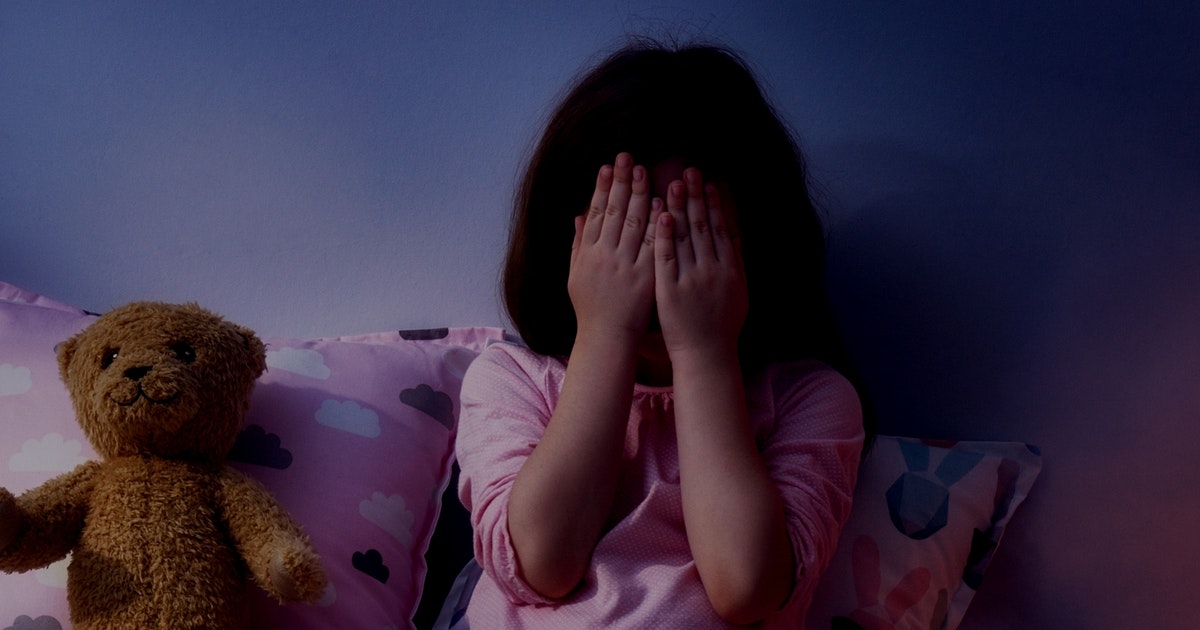Obviously, 2020 has been a monster of a year when it comes to change, anxiety, the unknown. As hard as we try to normalize things for our little ones, they can still pick up on our stress and energy levels. This stress can interrupt your little one’s daily routine or even cause them to have nightmares or night terrors. It’s important to understand the basics of nightmares and night terrors and what to do about them.
The distinguishing difference
Nightmares are super common (up to 50% of kids can have nightmares), especially in preschool children as they start to develop great imaginations. Nightmares occur in the later part of the night in the REM stage of sleep, after your child has been sleeping for a while. Oftentimes, your little will remember these nightmares.
Night terrors, on the other hand, are much less common. Only a small percent of kids experience night terrors, which occur early on in the night soon after your child goes to sleep. Unlike nightmares, these happen in the non-REM deep stage of sleep and your child won’t remember having the night terror in the morning.
Causes
Nightmares can be caused from any stress or change and are often about what is going on in the child’s life at that time. However, sometimes there really is no reason at all. For preventing nightmares, it is good to have a bedtime routine and make bedtime peaceful and calm. Doing bedtime activities that might help your mini wind down like reading a book or listening to music can be helpful. If you’re aware of something that might have triggered the last nightmare, it is best to try to avoid it as much as possible. If the child is scared, reassure them that the nightmare isn’t real and they are safe.
Night terrors can be caused when a child is overtired, has any stress or illness, or is in a new environment. To help prevent night terrors, try to reduce stress as much as possible, keep a bedtime routine, and ensure your child has enough rest. Trying to implement longer naps or earlier bedtimes can help prevent your babe from becoming overtired.
What to do when it happens
If your child has a nightmare, basically do just as your mom instinct would tell you! It is of course helpful to hug and comfort them. It’s also super important to reassure your mini that it was just a dream and let them know that they and everyone at home are safe. Remind them where they can find you if they need so that they are comfortable going back to sleep. In the morning, or the next day you can try to find out what incited the incident if your child brings it up or if the dream is recurring.
On the other hand, when your child experiences a night terror in their deep stage of sleep, you will not be able to console them because they will seem like they are awake even though they aren’t. Your mini might sit up, cry very loudly or even scream, and may be sweating. Typically, they will go back to sleep much sooner than with a nightmare, less than 30 minutes, or even within minutes. However, they won’t remember waking up.
When your mini has a night terror, it can be really difficult to process the fact that they are not awake. Of course, as a parent, you really want to console your babe when you see them in such distress but it is best to resist this urge. Some children may even try to push you away if you try to hold them. It’s actually quite difficult to wake them in this deep sleep stage and if they are awoken, they will be confused and it may take longer for them to fall asleep.
Remember, your mini won’t remember what happened and is typically asleep the whole time. As long as you are there to ensure they are safe and return to bed when they settle down, you have done a great job.
Nightmares are very common and comforting your child with hugs, kisses, and reassurance that it was a dream and not real does work. If your child is experiencing a night terror, know she will be OK, even though it can be upsetting to see.
As a parent, understanding nightmares and night terrors and knowing what to expect can help you stay calm when they happen. Be rest assured your child will be totally fine, most resolve and are not cause for concern.



